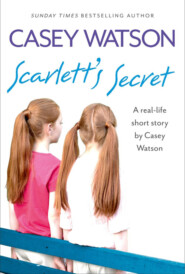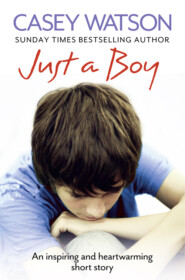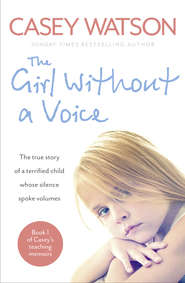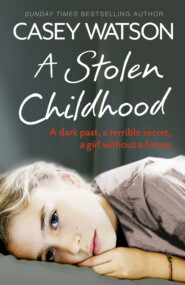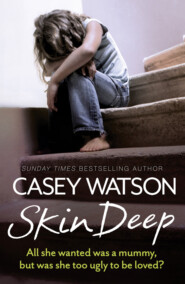По всем вопросам обращайтесь на: info@litportal.ru
(©) 2003-2025.
✖
Triumph Over Adversity 3-in-1 Collection
Настройки чтения
Размер шрифта
Высота строк
Поля
‘Here,’ she said. ‘Thought I’d make you one while I was at it.’ Then she smiled at the children. ‘You all look like very busy bees. Everything okay?’
They nodded dutifully. ‘Thanks, love,’ I said to her. ‘That’s thoughtful.’ I had my little ‘coffee corner’ but didn’t always get round to filling the kettle, so the mug of my preferred stimulant was very welcome. ‘I imagine I’ll only be an hour or so, maybe less. But you shouldn’t encounter any problems.’
Kelly grinned, pulling out her walkie-talkie from her pocket. ‘Don’t worry – I’m packing my secret weapon. We’ll be fine.’
Most of the teachers, and some of the support staff, like Kelly, had access to these contraptions so they could call for duty staff to come and help out in an emergency. This might involve something as simple as a child being asked to leave the class due to disruptive behaviour or, in more extreme cases, an extra pair of hands to help break up a physical fight. They were called Computerised Communications Units (CCUs) but I was the resident oddball because I never used mine. I hated new techno gadgets so relied on my new mobile phone – another piece of kit I had yet to fully master.
I grabbed it now and popped it in my handbag. Unlike the majority of the staff, I always kept the latter with me too, partly because with such a small group situation it was easy enough to keep an eye on, and partly because it was akin to a Mary Poppins handbag – something that had developed since Kieron was little. Him being the way he was, it had often been a lifesaver; if he got dirty or cut himself he’d be more upset that he looked dishevelled than if he hurt himself.
It was a lifesaver with the kids in school too. I always had tissues, packs of plasters, biscuits, sweets and even make-up, which always proved popular when girls got upset – a bit of lip gloss and a spot of blusher always cheered them up.
‘Right,’ I said, picking up the bag. ‘I’m off. And remember, everyone, I can whip up a maths lesson in seconds if need be, so, best behaviour while I’m gone.’
I walked quickly through the corridors before the bell went that would signal break time, along with the inevitable stampede of children rushing off to the tuck shop and the playground. It went just as I arrived outside Donald’s office’s closed door.
I opened it to find Donald and the family all assembled, the latter with their backs to me, facing his desk.
‘Ah, Casey,’ said Donald, rising. ‘Come in.’ He pointed to the remaining seat, which was positioned to the side of the desk. ‘This is Mrs Watson,’ he said to the assembled trio as I slipped past them and sat down on it. ‘She’s the one I told you about on the phone, and who’ll hopefully be looking after young Imogen here.’
I smiled and, now that I could see them, took in the row of people. The two grandparents – who were white-haired and both looked to be in their mid-seventies – and Imogen herself, a girl you really couldn’t miss; not with that veil of ginger hair – well, more strawberry blonde, actually; that’s what I’d have called it. But I knew kids. It was red. They’d call it ginger.
‘Good morning,’ I said, extending a hand. ‘Mr and Mrs …’
‘Hinchcliffe,’ the woman provided. ‘I’m Veronica,’ she added, accepting it. Her hand, like the rest of her, was small and frail-looking. ‘And this is Mick. We’re Imogen’s grandparents,’ she added. ‘She lives with us.’
Her voice was clipped and I could see by the way she was holding herself that she was nervous, though her husband – a huge, fit-looking man who had only acknowledged my arrival with a nod – seemed more interested in watching the swarm of excitable children who were now rushing, whooping and shouting, past Donald’s office window. I had the feeling it had been a while since he’d been exposed to so many youngsters all at once.
I turned to Imogen herself, but she didn’t seem to want to make eye contact. She just stared out of the same window, a blank expression on her face.
‘Imogen,’ prompted her grandmother, obviously seeing the direction of my gaze. ‘Did you hear Mr Brabbiner? This is Mrs Watson, your new teacher.’
Now Imogen did turn, blinking once as our eyes met, then lowering her head.
‘She won’t talk,’ Mrs Hinchcliffe said, looking pained. ‘Not here. Not anywhere. Can’t shut her up at home, of course.’
‘Oh, I said, glancing at Don. ‘So she is still speaking sometimes, then?’
Mrs Hinchcliffe nodded. ‘The doctor says it’s something called selective mutism. That she’s just choosing not to talk. Though for the life of us we can’t work out why.’
I nodded. ‘Don’t worry too much,’ I said. ‘I’m sure Imogen will be fine with us, won’t you?’ I turned to Imogen as I said this but she didn’t raise her head. ‘But can I ask you,’ I went on, conscious that I wasn’t completely comfortable discussing Imogen while she was in the room with us, but that, as she didn’t seem to want to contribute, there was really little choice, ‘why this school at this time? Where was she previously?’
Now the grandfather spoke. ‘We took her out of her other high school at the end of the summer term. Had to. She’d been fine before all this started – you know, moving in with us and everything. But when it did start happening, they were useless. All the other kids started picking on her and the teachers were no help at all. Just thought she was being awkward. It’s not right …’
Donald slid a file across the desk to me. ‘These are all Imogen’s notes from her previous school, Mrs Watson. I’ve obviously explained to Mr and Mrs Hinchcliffe that we can take Imogen, no problem, though, in terms of her mutism, I’m not actually sure how much help we can be. Though she does apparently have a therapist working with her at home now, doesn’t she, Mrs Hinchcliffe? So …’
‘A child psychologist, is what it is,’ Mr Hinchcliffe interrupted. ‘Load of mumbo jumbo, if you ask me.’ He scowled, though more in frustration, I thought, than in irritation. ‘The girl needs to sort herself out. Choosing when and where to speak …’
Imogen didn’t react in any way but I could see Don was looking uncomfortable. Perhaps more had been said before I’d entered. There was clearly some tension in the room. ‘Well,’ I said brightly, deciding to take charge of the situation, ‘there’s no need for us to go into all the ins and outs right now, and no point in Imogen being out of school any longer than she has to. If she has some uniform,’ I said, looking at her, but still seeing the top of her head mostly, ‘she could start tomorrow, if you like.’
I looked at Don, who signalled he was fine with that happening. ‘Or,’ I added, as it occurred to me, ‘if she doesn’t, I can perhaps help. We have a good stock of school logo sweatshirts at the moment, so, if you’d like me to find her one, it’s just a case of you kitting her out in a black skirt or trousers and a white shirt.’
Don’s expression changed now, at my off-message largesse. I was actually meant to try and sell the stock of surplus uniform, but I got the impression money was tight and I had a good stock of sweatshirts in my room. I was the lost property queen of the school, after all.
I stood up, picked up the file and extended my hand to the couple once again. ‘So if that’s it for now,’ I said, ‘I really need to get back to my class.’
Everyone else stood up too. ‘No, no, that’s fine,’ agreed Don. ‘We’ll see you tomorrow then, Imogen.’
‘Indeed you will,’ said Mrs Hinchcliffe. ‘Come on sweetheart,’ she said, nudging her granddaughter to stand up as well. ‘Come on, let’s get you home for some lunch, shall we?’
Imogen duly stood and only now could I see just how small she seemed to be for 13: small and slight and dressed in clothes that looked old and, more importantly, old fashioned – nothing like the clothes worn by most of her peer group. She was a pretty girl, with deep blue eyes, pale skin and a liberal sprinkling of freckles. I felt sorry for her. I somehow knew, even without checking, that this was an only child. No older siblings to help with fashion tips and general ‘fitting in’ type guidance. A lonely kid, I guessed, who found it hard to make friends. A ready target for bullies. Definitely that.
It felt all wrong to have been talking over her, even if there wasn’t really an option, since they’d brought her. Which was understandable – they wanted her to see the school for herself, of course they did. But it didn’t really make for a productive meeting. There were so many questions I’d have liked to ask, all of them personal, but that would have to wait till I had a chance to speak to Imogen’s grandparents alone. For now, I had only my gut instinct to rely on, and my gut instinct, as I watched them go, was that there was a lot going on here. That the grandfather’s insistence that they had no idea why their granddaughter had developed selective mutism was – without a doubt – not quite true.
Chapter 3 (#uc374aa13-50dd-54e0-95f2-ea1005475a74)
After a quick lunch and catch-up with Kelly in the staff-room, I made it back to my classroom only seconds before the bell went, with the usual accompanying surge of small purposeful bodies, almost all of whom were ignoring the equally familiar teachers’ shouts of ‘Walk, please!’, ‘Don’t run!’ and ‘Keep left!’
‘Miss, what we doing this afternoon?’ asked Shona, as I flicked on my kettle. ‘Not really maths, is it? Can’t me and Molly do some art?’
I spooned a large teaspoon of coffee into my mug. ‘Not maths, love, don’t worry. And we’re going to do something that is a bit like art, actually. It’s –’
But I was prevented from replying by the arrival of Gavin, bursting through the door like a small-boy-shaped battering ram, his ADHD medication clearly not yet having taken full effect. ‘Whoosh whoosh!’ he yelled, obviously pretending to be an aeroplane, swooping round the tables and catching Molly’s head with a lowered arm as he passed.
‘Gavin!’ Shona barked at him. ‘Leave her alone, you dickhead!’
‘Gavin, sit down,’ I commanded, hoping he’d actually do so. That wasn’t a given – not at this time of day, at any rate. ‘And Shona,’ I added, ‘it’s nice to see you sticking up for Molly, but we don’t name call in this classroom, okay?’
Happily, the other two boys appeared at that moment and, full of the gory details of some fight they had witnessed in the playground, were a timely distraction for the still pumped-up Gavin, so thankfully he did do as he was told. Which was a relief. When he was hyper like this it could sometimes take a good half-hour or more before he calmed down enough to be able to concentrate on anything. Which was bad for everyone else, of course, because his antics were so distracting.
What I had planned for this afternoon, however, might just distract him – and the others, too – in a more constructive way. Having chatted to Kelly, I’d decided to prepare the ground a little in readiness for Imogen’s arrival. I’d therefore changed my scheduled task – which we could do instead once she joined us – for an activity that would celebrate difference.
I had already arranged the tables so they could all sit together, and once my coffee was made, and the tales of ‘near death by the tennis courts’ were out of the boys’ systems, I called the children together and sat them down to explain the task.
‘It’s like art, isn’t it, Miss?’ Molly said. She was clearly proud to be the conveyor of a bit of inside information, bless her, though as soon as all eyes were on her she immediately blushed.
‘It is, love,’ I confirmed. ‘But first I want you all to do some thinking. I want you to think about what it is that makes you different from everyone else.’ I stopped then and dragged my old flip chart closer to the table, folding back the pages to reveal a blank one. I then took my marker pen. ‘Here, see,’ I said, as I began writing words on it. ‘Here are some things that make me me. “Black hair”,’ I said, pointing. ‘“Small”,’ I added, writing it. ‘“Loud” …’
This, predictably, got me a couple of snorts and giggles. ‘All these things,’ I went on, ‘make me different from, say, Molly, who is nice and quiet – when she knows she should be – and has fair hair. Whereas Henry –’ he straightened – ‘Henry has something in common with me. Can you think what that might be?’ I only waited a second before supplying the answer for them: ‘He’s also loud.’
More giggles, and I could see they had begun to work out what I was after. ‘So what I’m going to do,’ I said, ‘is tear off a big sheet of paper for each of you, and you can put things on it that show all your differences. You can use the catalogues and scrap drawers if you want to cut things out and stick them on to brighten things up, but make sure you put your name across the top so we can tell who we’re talking about when we pin them all up.
‘After that,’ I went on, ‘we’ll think of some really famous people, and how they’re different, and some people who might have some kind of disability, and together we’ll do some “difference” charts for them too. And that’s because this week we’re going to celebrate difference in a big way, and what’s more –’ I paused – ‘I have a prize going begging. And it’s going to the person who, by the end of the week, can show the best understanding of it, okay?’
As with any activity that involved cutting, sticking, mess-making and the possibility of a reward at the end of it, my young charges were immediately engaged. They were quick to set about gathering the materials they wanted to use for their creations and by the time I’d worked out the best area of wall to clear for the resultant works of art the room was buzzing with an air of productivity. It also gave me the chance to speak to them one-to-one, as I did every day, as well as their scheduled weekly half-hour life-space interviews. The few minutes in my corner were designed to give them a chance to let me know if there was anything that was troubling them, but today would also provide the perfect opportunity to prepare them individually for the arrival in the morning of our singular new pupil.
The children responded to news of Imogen pretty much as I’d expected. Molly, Shona and Ben all accepted her mutism without question, while Gavin and Henry were instantly curious.
‘Why can’t she speak?’ Henry wanted to know. ‘What happened to her voice? Did she get stabbed in the throat, Miss?’






